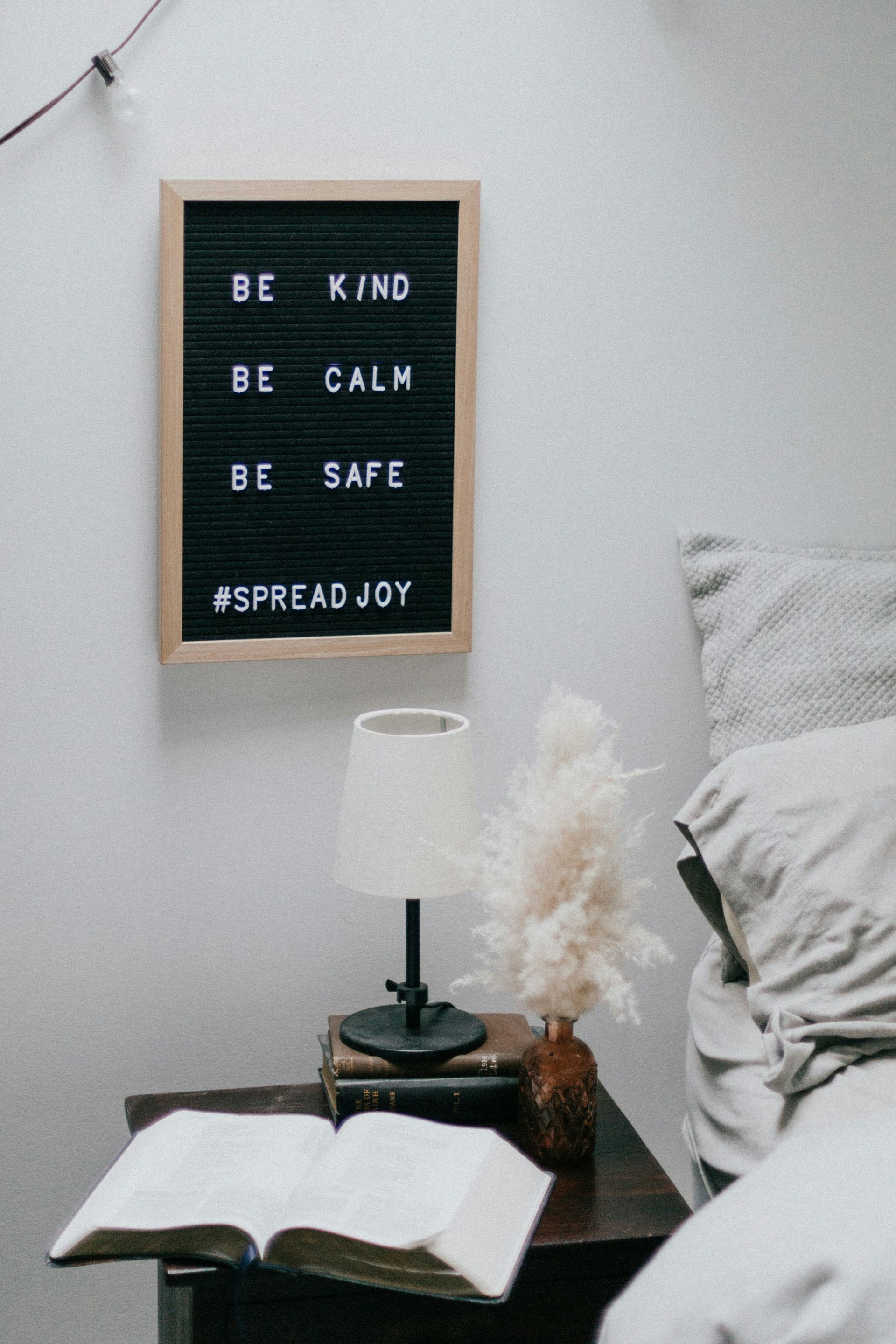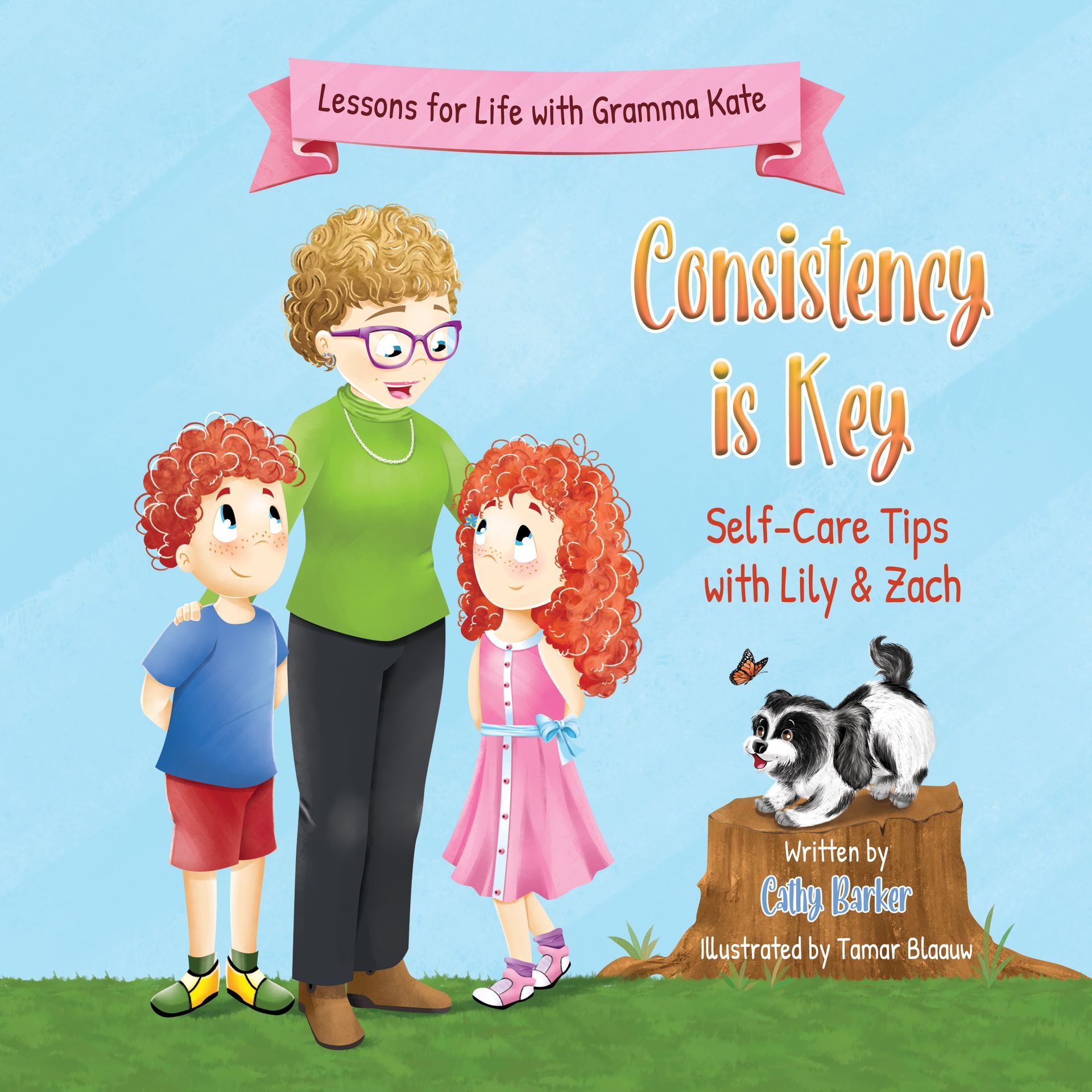
"A good laugh and a long sleep are the two best cures for anything."
– Irish Proverb
Here is your laugh:
To see how long he slept! Why did the man go to bed with a ruler?
Groaner!
We all know sleep is essential, but how often do we prioritize it—especially during the holidays?
Bedtime usually gets pushed aside between late-night festivities, family gatherings, and squeezing in just one more holiday movie.
Yet, a good night's sleep is one of the most valuable gifts we give ourselves—and our children. So, let’s dive into today’s topic of sleep. Particularly
why sleep matters,
how much we need it, and how
creating consistent routines—even during the holiday season—can transform bedtime battles into peaceful moments throughout the holidays and the year.
The Benefits of a Good Night’s Sleep
A good night’s sleep isn’t just about avoiding feeling tired—it helps our bodies and minds work their best. Sleep keeps us healthy, strong, and ready to handle whatever the day brings.
For parents, getting enough sleep helps in many ways:
- Improves Memory and Focus: Sleep gives your brain time to organize and store information, making it easier to remember things and stay sharp during the day.
- Helps Handle Emotions: When you sleep well, staying calm and dealing with stress is easier. Not getting enough sleep can leave you feeling irritable and stressed.
- Boosts Your Immune System: Sleep helps your body fight off sickness. With enough rest, staying healthy is easier.
- Keeps You Energetic: Getting quality sleep gives your body the energy to remain active and accomplish tasks effectively during the day.
Kids grow, learn, and explore daily, making sleep even more critical. Here’s how sleep helps children:
- Manages Emotions and Behavior: Well-rested kids are better at staying calm, sharing, and handling challenges. Tired kids get cranky, frustrate easily, or have more meltdowns.
- Improves Focus and Learning: Sleep gives kids the brainpower to focus in class and understand new things. A tired brain finds it challenging to concentrate.
- Supports Growth and Development: Sleep is when the body grows a lot! From building strong muscles to developing the brain, kids need plenty of rest to stay on track.
- Helps Stay Healthy: A full night’s sleep strengthens the immune system, so kids are better at fighting colds and other illnesses.
Getting enough sleep is like charging a battery—it keeps kids and parents powered up and ready for their best days! So, how much sleep do we need?

How Much Sleep Do We Really Need?
Everyone needs sleep, but how much depends on your age and stage of life. The National Sleep Foundation gives helpful guidelines to know how much rest is best:
Preschoolers (3–5 years): 10–13 Hours a Night
Preschoolers are little bundles of energy, always on the move! They need plenty of sleep to support their rapid growth and endless curiosity. Sleep helps them recharge so they can run, play, and explore the world around them.
School-Age Children (6–13 years): 9–11 Hours a Night
Once kids start school, sleep becomes even more critical. Their days are filled with learning, playing sports, and making new friends, all of which take energy and focus. A well-rested brain helps them pay attention in class, solve problems, and handle challenges. When kids this age don’t get enough sleep, they struggle with mood swings or have trouble keeping up with schoolwork.
Teenagers (14–17 years): 8–10 Hours a Night
Teenagers might seem like they don’t need as much sleep, but they do! Their bodies and minds are undergoing tremendous changes, and sleep helps. Rest gives teens the energy to manage school, extracurricular activities, and social life. It also helps them deal with stress and build healthy habits. Teens who don’t get enough sleep feel more tired, struggle with focus, and may even feel more emotional or stressed.
Parents: 7–9 Hours a Night
Parents need less sleep than kids, but getting enough is still essential. Sleep helps parents stay sharp, make good decisions, and strengthen their immune systems. A full night’s sleep also gives parents the energy to balance work, family, and other responsibilities. Skipping sleep can lead to feeling drained, forgetful, or even getting sick more often.
Having the right setting can make all the difference.

The Role of a Sleep-Friendly Environment
It’s important to create a calm and cozy bedroom for restful sleep by:
- Keeping it Cool: A slightly cooler room temperature (around 65°F or 18°C) is ideal.
- Dimming the Lights: Darkness signals the body to produce melatonin, the sleep hormone. Consider blackout curtains or a soft nightlight if needed.
- Minimizing Noise: Use white noise machines or fans to block out disruptive sounds.
- Comfort First: Ensure mattresses and pillows are comfortable and supportive.
- Decluttering: A tidy room promotes a sense of calm and relaxation.
Now that your bedroom is set up as a sleep sanctuary, it’s time to focus on what happens before you even crawl under the covers. A consistent bedtime routine is the key to transitioning smoothly from the busyness of the day to a state of calm relaxation.
9 Vital Tips for Creating a Bedtime Routine for Yourself and Your Kids
A solid bedtime routine is the secret ingredient to smoother evenings and more restful nights. I follow the 10-3-2-1-0 rule to establish habits that promote a good night’s sleep:
For Parents
10 Hours Before Bed: I say goodbye to caffeine and other stimulants because these linger in my system and interfere with the quality of my sleep.
3 Hours Before Bed: I avoid heavy meals and alcohol. These disrupt digestion and lead to a restless night.
2 Hours Before Bed: I finish any intense work or stimulating mental activities to give my brain time to unwind.
1 Hour Before Bed: I turn off all my screens, such as my phone, tablet, and TV, to limit my exposure to blue light, which suppresses melatonin production. I use this hour for calming activities like having a relaxing bath, my oral routine, getting my clothes ready for the next day, and reading a no-brainer book.
0: I don’t press “snooze” in the morning!
Question, do you set an alarm or wake up naturally? I have tried both ways and discovered that I am at my best when I do not set an alarm but wake up naturally unless I have an early morning appointment. I determined how much sleep I needed and then worked backwards to decide when I wanted to get up. I need about nine and a half hours of sleep, so I am in bed with the lights out between 9:30 and 10:00 to get up between 6:00 and 7:00 am.

For Kids
Establishing a bedtime routine for kids helps them fall asleep faster and creates a sense of security and comfort. Here’s how you can make bedtime smooth and stress-free:
- Stick to the Same Steps: Children should follow the same activities every night, like brushing their teeth, reading a story, or cuddling, which helps them know what to expect and feel more relaxed.
- Pick Calming Activities: Avoid screens before bed and try soothing options like reading a book, listening to soft music, talking about their day, or things they are grateful for.
- Give a Countdown: Letting kids know when bedtime is coming helps them prepare. For example, you could say, “It’s 10 minutes until we brush our teeth!” Then, set a timer so everyone knows when the ten minutes are up.
- Provide Comfort: Some kids feel nervous at bedtime. A hug, a kiss, and telling them you’re close by can help them feel safe and ready to sleep.

Why Consistency Matters in Sleep, Especially for Kids
Consistency is vital when it comes to sleep. Going to bed and waking up at the same time every day helps regulate our internal clock or circadian rhythm. This rhythm influences when we feel awake and when we feel tired. By sticking to a set schedule—even on weekends and holidays —our bodies learn when it’s time to rest and when it’s time to wake up.
A consistent bedtime routine reduces stress, improves mood, and enhances children's learning abilities. The predictability of a regular schedule also creates a sense of security, making bedtime a comforting ritual rather than a dreaded chore.
In my children’s book,
Consistency is Key: Self-Care Tips with Lily and Zach,
available through Amazon and your local bookstore. The characters discover
how important good habits and routines are,
not just for fun today but for growing into their best selves in the future. In the story, Lily and Zach are eager to stay up late during their week at Gramma Kate's house and skip their bedtime routine. However, with her caring wisdom,
Gramma Kate teaches them that creating consistency in their habits—like going to bed at the same time each night and following a calming routine—helps them feel their best and be ready for each new day. As they follow Gramma Kate’s morning and evening routines, Lily and Zach realize that these small, consistent actions add significant benefits. The story shows how
the habits we build when we're young, like sticking to a bedtime routine or setting time aside for self-care, lay the foundation for reaching our full potential later in life.
By creating consistency now, they are learning the skills to help them succeed and thrive as they grow older.

Conclusion
As parents, we set the tone for our household. By modelling good sleep habits, we teach our children that rest is a priority. Start by creating your bedtime routine and consistently enforcing theirs. Make it a family goal to value sleep as essential to health and happiness.
Bedtime doesn’t have to be a battle—it can be a bonding experience. Focusing on consistency, routines, and the right environment can transform how we approach sleep for ourselves and our kids. Better sleep means better days filled with more energy, focus, and joy for the entire family.
What’s one small change you can make tonight to improve your family’s sleep?
Let’s start there—because every little step counts regarding sleep.
"Remember, change begins with ourselves.
Put your knowledge into action and reach your full potential ."
Wishing you heartfelt warmth
and support on your parenting journey!
Cathy
Wish Setting Boundaries Was Easier?
Grab your FREE 7-day guide and create boundaries that bring you peace and balance!
All Rights Reserved | Cathy Barker
Site Designed and Developed by Client First Web Design & Graphics
